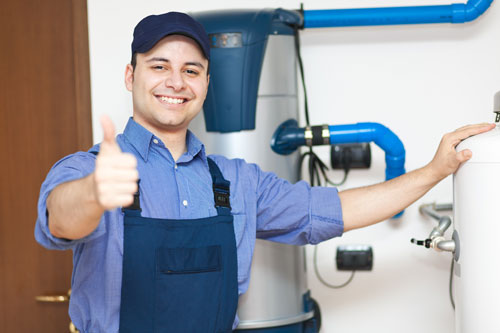Everyone will have their own unique thinking about Common Problems with Tank Water Heaters.

Visualize starting your day without your routine warm shower. That already establishes an inadequate tone for the rest of your day.
Every home needs a trustworthy hot water heater, yet just a couple of understand exactly how to manage one. One easy means to keep your water heater in leading form is to check for mistakes consistently as well as fix them as quickly as they appear.
Remember to switch off your water heater prior to sniffing about for faults. These are the hot water heater faults you are more than likely to experience.
Water also hot or as well cold
Every water heater has a thermostat that determines exactly how warm the water gets. If the water entering your residence is too hot in spite of establishing a convenient maximum temperature level, your thermostat could be faulty.
On the other hand, also cold water might be because of a failed thermostat, a busted circuit, or inappropriate gas flow. For example, if you make use of a gas water heater with a broken pilot burner, you would certainly get cold water, even if the thermostat is in ideal condition. For electric heaters, a blown fuse may be the culprit.
Inadequate hot water
Water heaters been available in many dimensions, relying on your hot water demands. If you lack warm water before every person has had a bath, your water heater is too small for your family size. You ought to think about setting up a larger water heater container or selecting a tankless water heater, which occupies less area and is a lot more durable.
Odd sounds
There are at least 5 kinds of noises you can learn through a hot water heater, but the most usual analysis is that it's time for the water heater to retire.
To start with, you must know with the normal sounds a water heater makes. An electric heating unit may seem different from a gas-powered one.
Popping or banging sounds typically imply there is a slab of sediment in your storage tanks, and it's time to clean it out. On the other hand, whistling or hissing sounds might merely be your valves letting some pressure off.
Water leakages
Leakages might come from pipes, water links, valves, or in the worst-case circumstance, the tank itself. With time, water will certainly corrode the container, as well as discover its escape. If this occurs, you require to change your hot water heater immediately.
However, prior to your modification your entire storage tank, make sure that all pipes remain in area which each valve works completely. If you still require aid recognizing a leak, call your plumber.
Rust-colored water
Rust-colored water implies among your hot water heater elements is worn away. Maybe the anode rod, or the storage tank itself. Your plumber will certainly have the ability to identify which it is.
Lukewarm water
Regardless of just how high you set the thermostat, you will not obtain any kind of warm water out of a heating system well past its prime. A water heater's efficiency may decrease with time.
You will also get lukewarm water if your pipes have a cross link. This suggests that when you switch on a tap, hot water from the heating unit streams in alongside regular, cold water. A cross link is very easy to place. If your hot water faucets still pursue closing the hot water heater valves, you have a cross connection.
Discoloured Water
Corrosion is a significant reason for unclean or discoloured water. Deterioration within the water storage tank or a failing anode pole could create this discolouration. The anode rod shields the storage tank from rusting on the within as well as need to be inspected yearly. Without a pole or an effectively working anode rod, the hot water promptly wears away inside the tank. Contact a specialist hot water heater professional to establish if replacing the anode rod will deal with the problem; otherwise, change your water heater.
Conclusion
Ideally, your hot water heater can last 10 years prior to you require a change. Nevertheless, after the 10-year mark, you might experience any one of these mistakes a lot more regularly. At this point, you should include a brand-new water heater to your budget.
How To Troubleshoot 3 Common Water Heater Problems in Twin Cities
The Water Heater Is Leaking
A leaky cold water inlet valve A loose pipe fitting A leaky temperature and pressure relief valve A corroded anode rod A cracked tank Turn Off Your Water Heater:
Shut off your gas water heater by turning the gas valve on the unit to the “OFF” position. Shut off your electric water by switching its power off at your electrical panel. Look for a two-pole breaker labeled “water heater” and turn it to the “OFF” position. Move the ball valve connected to the water heater to be perpendicular to the piping at a 90° angle. Look for the Leak:
Depending on whether the water is coming from the tank's top or bottom, you’ll want to look for the leak in different locations.
If the leak comes from the top of the tank, carefully look for water escaping from the cold water inlet valve or loose pipe fittings. Rusted hot and cold water valves can have loose connections with the tank, with water leaking out of them.
https://mspplumbingheatingair.com/blog/how-to-troubleshoot-3-common-water-heater-problems
I discovered that article about Water Heater Repair and Troubleshooting while surfing the web. Do you know about someone else who is serious about the niche? Take a moment to promote it. Thank you so much for going through it.
Call, we deliver!